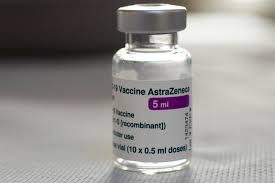USA plans to share its entire stock of AstraZeneca vaccines
 The USA plans to share its entire stock of vaccines from AstraZeneca once the COVID-19 vaccine clears federal safety reviews, the White House told Associated Press yesterday, as many as 60 million doses expected to be available for export in the coming months.
The USA plans to share its entire stock of vaccines from AstraZeneca once the COVID-19 vaccine clears federal safety reviews, the White House told Associated Press yesterday, as many as 60 million doses expected to be available for export in the coming months.
The move greatly expands on the Biden administration’s action last month to share about four million doses of the vaccine with Canada and Mexico.
The AstraZeneca vaccine is widely in use around the world, including here in Canada, but is not yet authorized by the U.S. Food and Drug Administration.
The White House is increasingly confident in the supply of the three vaccines being administered in the USA, particularly following the restart of the single-dose Johnson & Johnson shot over the weekend.
The USA also has been under mounting pressure in recent weeks to share more of its vaccine supply with the world, as nations like India experience devastating surges of the virus and others struggle to access doses needed to protect their most vulnerable populations.
The White House COVID-19 coordinator Jeff Zients said, “Given the strong portfolio of vaccines that the U.S. already has and that have been authorized by the FDA, and given that the AstraZeneca vaccine is not authorized for use in the USA, we do not need to use the AstraZeneca vaccine here during the next several months. Therefore, the USA is looking at options to share the AstraZeneca doses with other countries as they become available.”
More than three million people worldwide have died of COVID-19, including more than 572,000 in the USA alone.
About 50 million more doses are in various stages of production and could be available to ship in May and June pending FDA sign-off.
The USA has yet to finalize where the AstraZeneca doses will go. Both Canada and Mexico have asked the Biden administration to share more doses, while dozens of other countries are looking to access supplies of the vaccine.
The AstraZeneca doses will be donated by the USA government, which has contracted with the company for a total of 300 million doses, even though the company has faced production issues.


